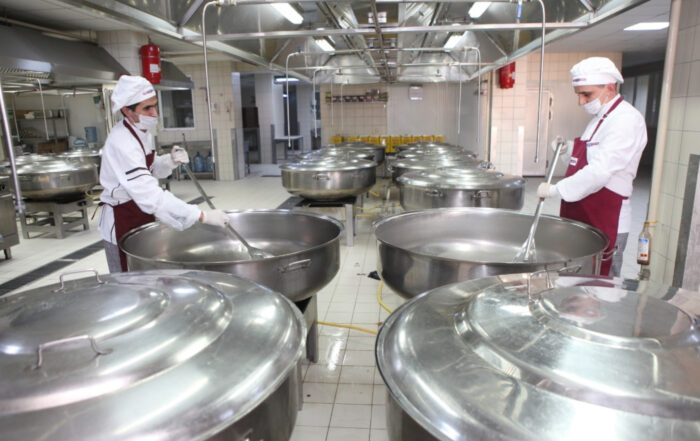Why a customized Preventive Control Plan for your food business is worth the investment
No food business can afford to have a product safety concerns in the marketplace. Costs can come in the form of financial penalties and loss of market reputation, or imprisonment depending on the severity and toll that the safety concern presents to human health and life.
Preventive Control Plans (PCPs) can help prevent food safety risks. PCPs are written systems that explain how your food safety compliance management practices meets Safe Food for Canadians Regulations (SFCR) requirements.
Aside from being a Canadian Food Inspection Agency (CFIA) legal requirement, a comprehensive Preventive Control Plan (PCP) encourages manufacturing efficiency and prevents identified food safety hazards. In the end it simply makes for safer, consistent quality food products for customers and can limit or prevent the potential for small operational and product problems to develop into bigger problems.
Developing a PCP is not meant to be an off-the-shelf one-size fits all solution, nor a box to be simply checked. They are set of “living” documents tailored to your specific business and products that evolve as your food business grows and changes.
A well-written PCP compiles all the food safety factors throughout your operations and for each of your foods categories and individual products. This begins with the origin and nature of its raw materials and the risks involved during the processing stages, all the way to documenting distribution supply chain risks and down to the moment products reach consumers.
When it comes down to consumer safety, it is critical to identify, document and control risks that may be detrimental to health. For instance, when using certain ingredients in products, or where products come into contact with allergens that pose specific risks to selected populations. General population risks include short-term and long-term risks. Short-term risks such as food poisoning from microbial contamination can lead to hospitalization. Long-term risks include the carcinogenic effects of aflatoxins, heavy metals, or pesticide residues in food.
PCP documents are not meant to remain static and should be updated to reflect material changes in the overall business and products. Changes for example can come from moving or expanding facilities or introducing new equipment or product lines.
There is risk in a poorly written Preventive Control Plan
It is best to look at the importance of well-written PCP beyond the regulatory requirements and development costs, but rather as an investment to insulate the business positioning it for long terms growth and viability.
A poorly written PCP can provide a false sense of trust and reliability to the importer or manufacturer of record by inferring that the plan has addressed all the aspects of food safety. However, the real test comes when an actual recall needs to takes place, or the PCP is requested during a random CFIA industry inspection.
The importance of customizing your PCP to business operations
PCP optimization is critical to achieve overall compliance with SFCR requirements, to prevent food safety hazards and reduce the likelihood of contaminated food entering the market. Each food business is unique and preventive control requirements can vary based on types of ingredients used, handling and steps used during processing. For instance, a PCP created for importation of meat or fish products cannot be utilized for dried spices or snacks as the hazards associated with both the categories of the products will have to be considered in writing a PCP plan.
Importantly, the PCP should not be misinterpreted as simply a hazard analysis check-list. CFIA inspectors look for additional documents that extend beyond Hazard Analysis, including Supplier Compliance Verification, and procedures related to Traceability, Recall, and Handling of Complaints. During an inspection, CFIA personnel may request the Complaints Log for the previous two years as well as Mock Recall records. These items will provide the inspector with a good overall understanding of how your firm manages overall food safety expectations by CFIA.
It is also important to know that the inspector may choose to conduct interviews with the importer or manufacturer of record and possibly the team responsible for the PCP implementation.
A robust PCP is optimized to ensure it encompasses all necessary aspects of regulatory compliance for the operations and products, and accounts for, and details every possible hazard that must be considered prior to releasing products into the market.
Get help from experts
Often times, priorities are given to activities that create immediate or visible results. PCP development is considered as a “non-value-added” cost because it’s value, impact, or lack of understanding regarding its importance, is not always immediately apparent. Competing priorities, or reluctance to allocate appropriate resources required to develop a robust PCP result in a poor plan that can compromise the business.
The consequences from an inadequate PCP or not having a PCP in first place can become expensive beyond just the financial penalties.
The knowledgeable professionals at MCS Associates bring strong PCP development experience covering a wide range of food commodities. Our support can help ensure that your PCP will be tailored specifically to your business operations and efficiently maintained as your business grows and evolves.
Can we help? Contact Us.
Contact our food safety experts at enquiries@mcs-associates.com to support your PCP requirements.







